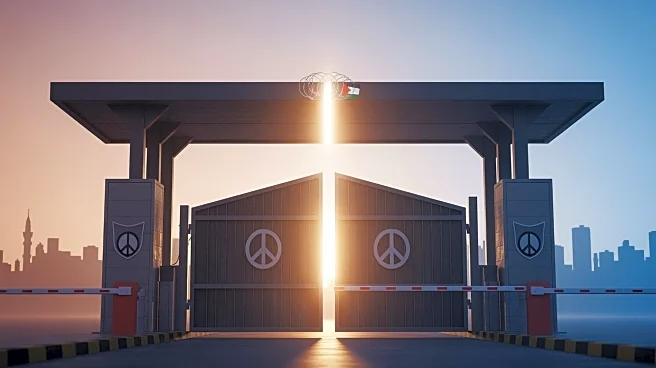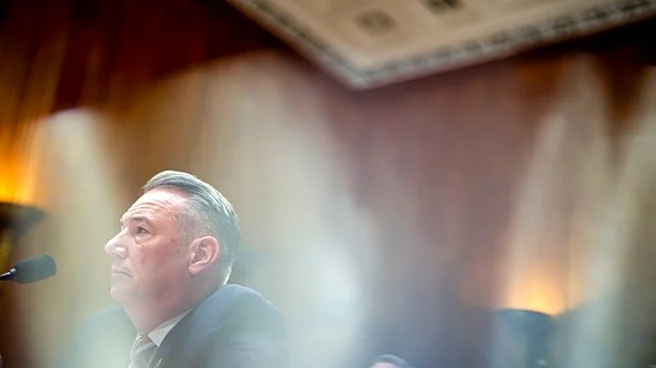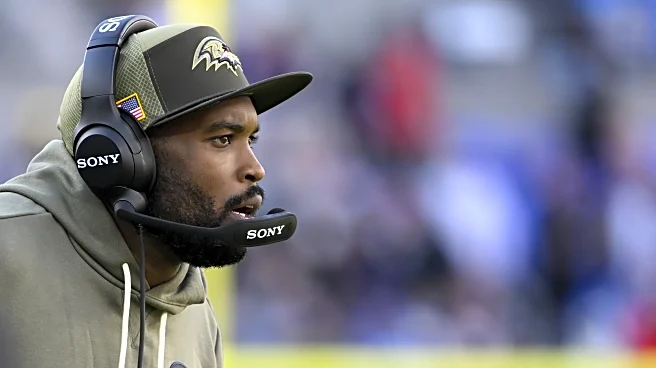What's Happening?
The UN humanitarian chief has called on Israel to open more crossings into Gaza to facilitate the flow of aid, following delays in the return of hostages' bodies by Hamas. The ceasefire agreement, brokered by the US, has allowed some aid to enter Gaza,
but Israel has threatened to restrict supplies due to Hamas's failure to return all hostages' bodies. The situation has led to increased food prices and stockpiling in Gaza, as residents fear the ceasefire may not hold.
Why It's Important?
The call for increased humanitarian access highlights the ongoing challenges in delivering aid to conflict zones and the impact of political tensions on humanitarian efforts. The situation underscores the importance of maintaining ceasefire agreements and the role of international organizations in advocating for civilian needs. The potential restriction of aid could exacerbate the humanitarian crisis in Gaza, affecting thousands of civilians and increasing regional instability.
What's Next?
The UN's appeal may lead to diplomatic discussions between Israel and Hamas to ensure compliance with the ceasefire terms. The situation may prompt international pressure on both parties to prioritize humanitarian needs and facilitate aid delivery. The ongoing tensions could influence future peace negotiations and impact regional security dynamics.
Beyond the Headlines
The situation raises ethical questions about the use of humanitarian aid as a bargaining tool and the responsibilities of nations under international law. It highlights the need for stronger international protections for civilians in conflict zones and the importance of diplomatic efforts in resolving humanitarian crises.

















